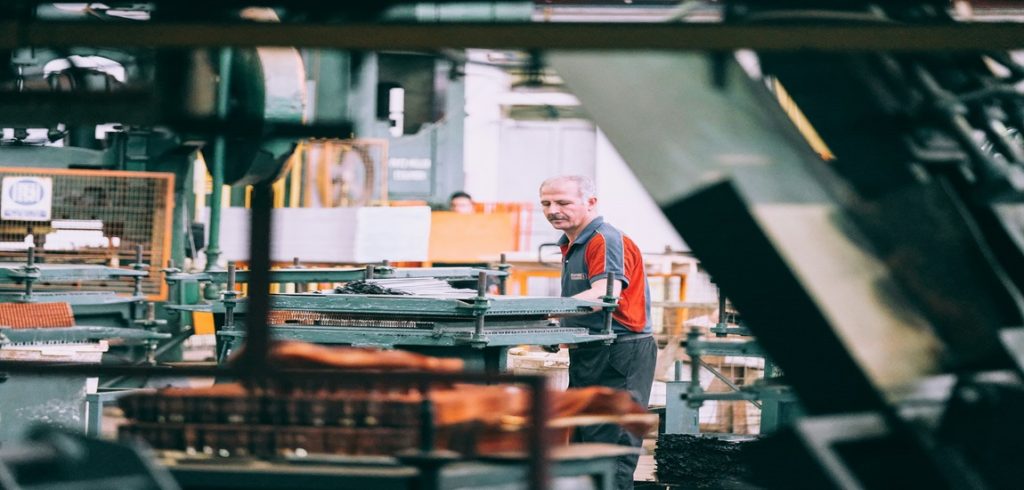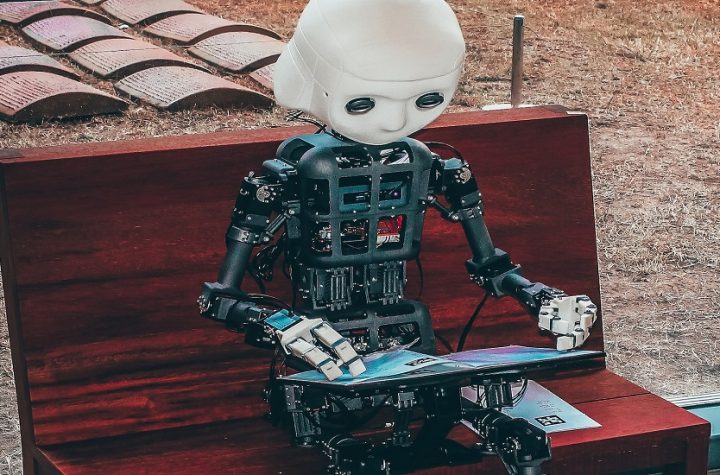
Pic Courtesy - UnSplash
In today’s quickly changing economic landscape, artificial intelligence (AI) has emerged as a major changer, particularly in the industrial sector. The incorporation of AI technology into industrial processes has created new opportunities for enhanced efficiency, quality control, and predictive maintenance, all of which help to realize Industry 4.0. In this article, we will look at how AI is transforming business and industry in six major areas, supported by real-world examples.
1. Aids in Process Automation
Process automation is a critical component of contemporary production since it increases efficiency and decreases errors. AI plays an important role in speeding and optimizing these procedures.
Case Study : Tesla, the electric vehicle behemoth, utilizes a combination of AI and robotics to automate its manufacturing lines. AI-powered robots can carry out repetitive and precise jobs with great efficiency. This not only increases productivity but also considerably minimizes the margin for human mistake. This scenario highlights how AI may help with process automation, lowering labor costs and increasing throughput.
2. Suggests Predictive Maintenance
Predictive maintenance is one of AI’s most impactful applications in manufacturing. AI systems can forecast when machines will malfunction and require maintenance by analyzing data from sensors and equipment.
Case Study : General Electric (GE) is an excellent example. Their “Predix” technology uses artificial intelligence to monitor industrial equipment’s condition and detect probable malfunctions. This enables regular maintenance, which reduces downtime and saves millions of dollars on repair expenses. Predictive maintenance also enhances the life of machinery, making it a win-win situation for manufacturers.
3. Facilitates Quality Control
Quality control is paramount in manufacturing, ensuring that products meet high standards. AI-driven image recognition technology has revolutionized quality control processes.
Case Study : Foxconn, a renowned electronics manufacturer, inspects electrical components using computer vision and artificial intelligence (AI). These technologies can detect even minor flaws that human operators may overlook. This not only improves product quality but also expedites the inspection process, decreasing bottlenecks in the manufacturing line.
4. Monitors Operational Efficiency
Operational efficiency is important to the success of manufacturing companies. AI-driven analytics can provide real-time insights into machine performance and the overall manufacturing line.
Case Study : Bosch, a multinational technology corporation, uses AI to oversee its production operations. They can spot inefficiencies and make fast changes by gathering and analyzing data from multiple sensors. This data-driven strategy has resulted to a significant decrease in production costs and increased overall efficiency.
5. Notifies Process Violations
Process violations can result in product failures, compliance problems, and safety concerns. Artificial intelligence can play a critical role in preventing and correcting such infractions.
Case Study : Nestlé, a food and beverage manufacturer, employs artificial intelligence to monitor the safety of its production lines. Their technology continuously analyzes data from sensors and cameras, automatically identifying any deviations from conventional operating practices. This proactive strategy ensures that any process violations are rectified in real time, preventing substandard products and assuring industry compliance.
6. Contributes to the Concept of Industry 4.0
Industry 4.0, also known as the Fourth Industrial Revolution, envisions a future in which manufacturing processes are fully integrated, automated, and data-driven. AI is at the center of this revolution.
Case Study : Siemens is a global industrial manufacturing corporation. Siemens uses AI to construct a digital twin of its production processes, allowing for real-time monitoring and analysis. This digital twin enables remote operation, predictive maintenance, and ongoing optimization. It demonstrates how AI contributes to the implementation of Industry 4.0, in which data and automation become the foundation of modern manufacturing.
AI-driven business and manufacturing have brought forth a new era of efficiency and production. According to case studies from top firms, AI aids in process automation, proposes predictive maintenance, facilitates quality control, monitors operational efficiency, informs process infractions, and adds to the concept of Industry 4.0. This transition benefits organizations not only financially, but also results in better products, less downtime, and more safety.
Manufacturers throughout the world are using AI technologies to stay competitive and react to the demands of a continuously changing market. As we look to the future, the role of AI in business and industry will only rise, presenting great opportunities for innovation and growth. Those who embrace AI-powered solutions will be well-positioned to succeed in this new era of manufacturing excellence.







3 thoughts on “AI-Driven Business and Manufacturing: Transforming Industry 4.0”